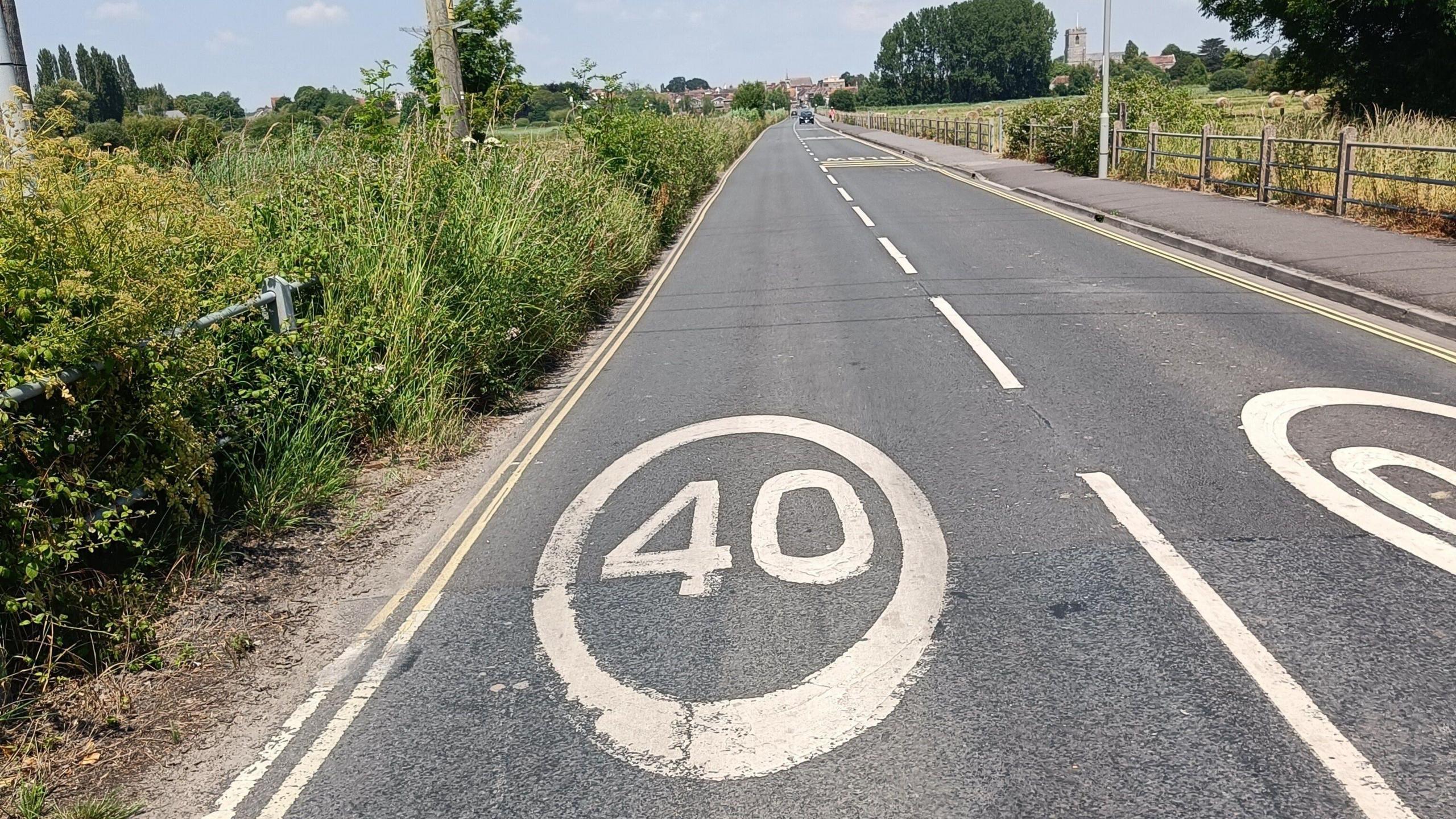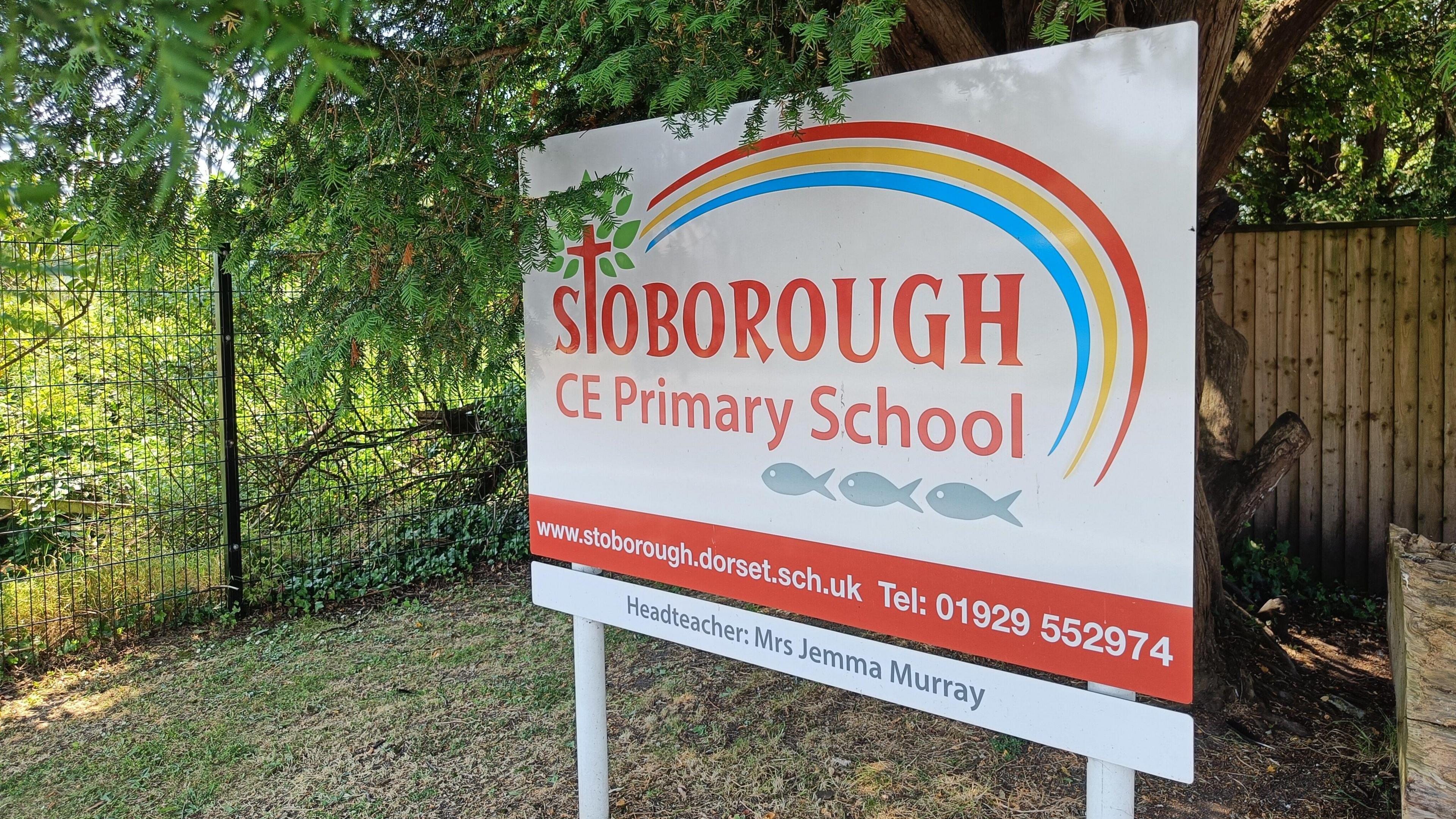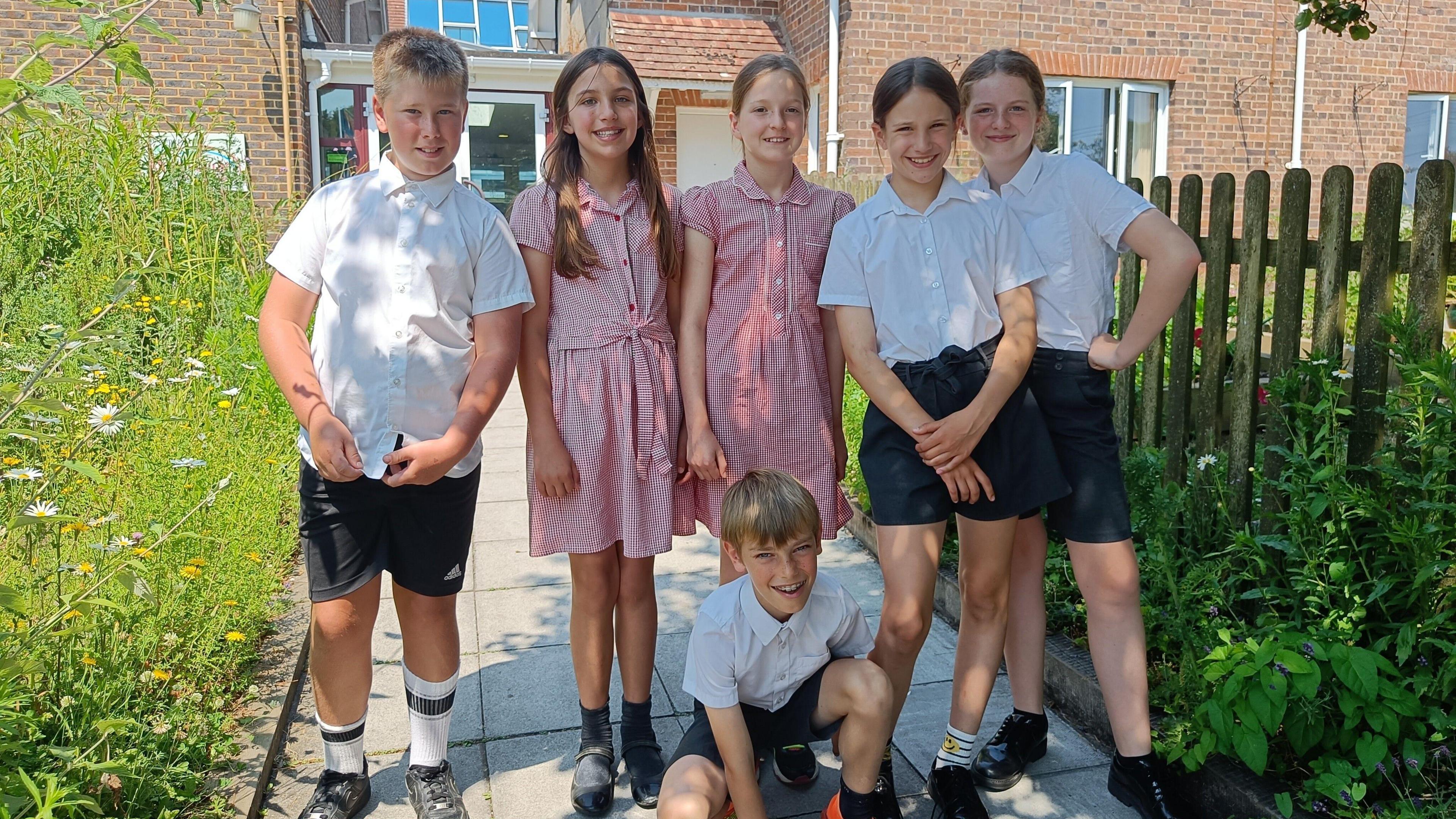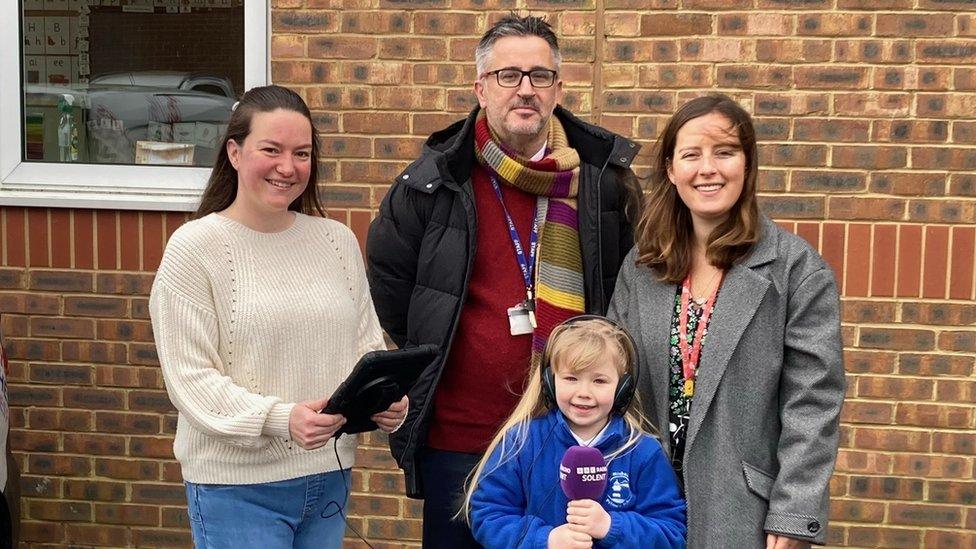Primary school pupils protest against speed limit

The road known locally as "the causeway" is used by children going to and from the school
- Published
Primary school pupils have been protesting against the speed of a nearby road which they walk along to access their school.
Students from Stoborough Primary School near Wareham, Dorset, want the speed limit reduced from 40mph (64kh/h) to 30mph (48km/h) on the B3075 South Causeway.
The school said pupils organised the protest to encourage support from local residents and it said they had written to the council to ask it to consider making the change.
Dorset council has been approached by the BBC for comment.

The primary school held a protest to encourage support from local residents
Students from the school have described the road as "narrow" and "quite scary" at the moment.
They added they thought it would give pupils more independence if the speed limit was lowered as parents would feel more confident to allow their children to walk to and from school on their own.

Students from the school have described the road as "narrow" and "quite scary"
Beccy Spicer, deputy headteacher of Stoborough Primary School, said: "A lot of our families are feeling that it is too unsafe to walk to school, which is a shame because we want to promote walking to school.
"Not only for health and wellbeing but also because our children are very protective of the environment and would like to walk and not use a car because that's going to help with climate change, they're very passionate about this."
She added: "We just feel, as a community in Stoborough, there's no need for it to be 40 when it is 30 either side."
Ms Spicer said the idea for the protest came from the students who raised the issues.
"There's a lot of learning involved - they've written letters, they've done some data handling and surveys, but also it's really important to get our young children heard," she said.
"They are the future."
Follow BBC South on Facebook, external, X (Twitter), external, or Instagram, external. Send your story ideas to south.newsonline@bbc.co.uk, external or via WhatsApp on 0808 100 2240, external.
Related topics
- Published26 February 2024

- Published28 February 2024
